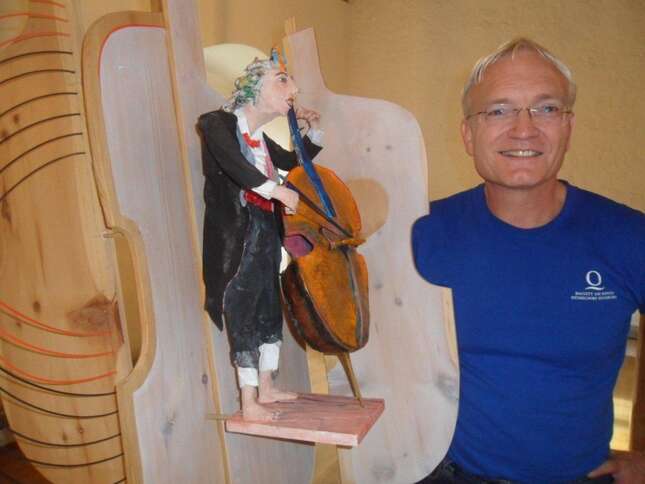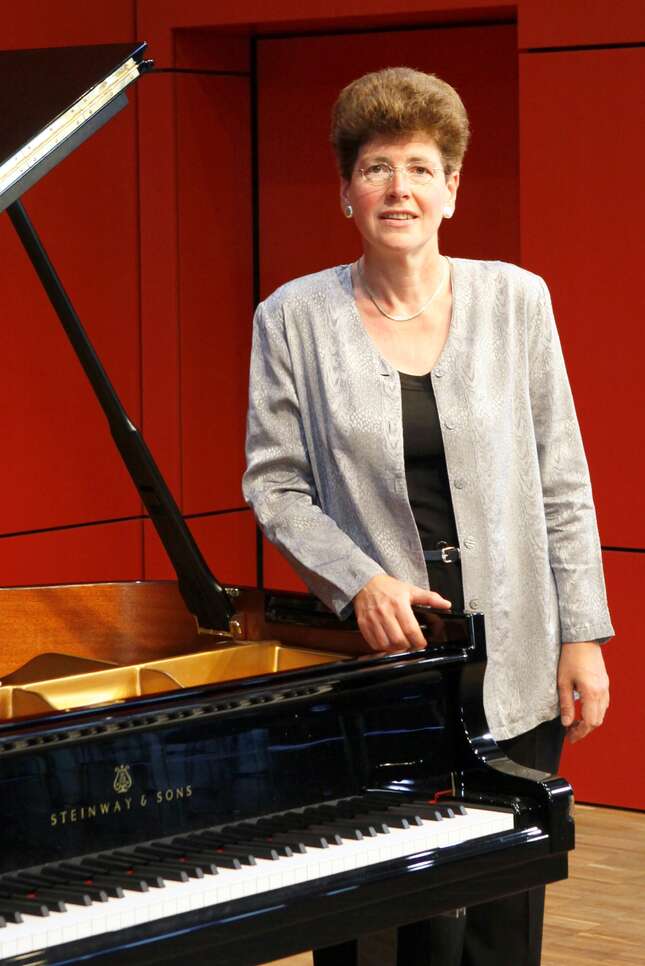
Ensemble double bass Günter Fischer
Günter Fischer wurde 1957 in Würzburg geboren. Ab seinem zwölften Lebensjahr nahm er Trompetenunterricht. Mit siebzehn wechselte er zum Kontrabass an die Hochschule für Musik Würzburg und hatte Unterricht bei Prof. Karl Reuschel, bei Prof. Günter Klaus und Prof. Michinori Bunya. Fischer spielte im Bayerischen- und Nordrhein-Westfälischen Landesjugendorchester, am Theater der Stadt Würzburg und ist seit 1979 Mitglied im Bayerischen Kammerorchester. Seit 1983 ist Günter Fischer als stellvertretender Solokontrabassist bei der Württembergischen Philharmonie in Reutlingen tätig. Er war 1988 Gründungsmitglied des Streichquintettes musica varia ensemble und leitet dieses bis heute. Seine musikalische und kreative Vielseitigkeit findet in diesem Ensemble seinen Ausdruck durch Programme von der Klassik über den Swing und Schlager bis zum argentinischen Tango. Er kreiert die Programmideen und Moderationen dazu. In dieser Form arbeitet er auch ab und zu für das Bayerische Kammerorchester und die Württembergische Philharmonie. Seine Kinderkonzertreihe "Der alte Mann und der Bär" lief über zwei Jahre lang erfolgreich in Süddeutschland und das Konzept dazu ist im Buch " Spielräume Musikvermittlung" (ConBrio Verlag) nachzulesen.
www.musicavariaensemble.de








